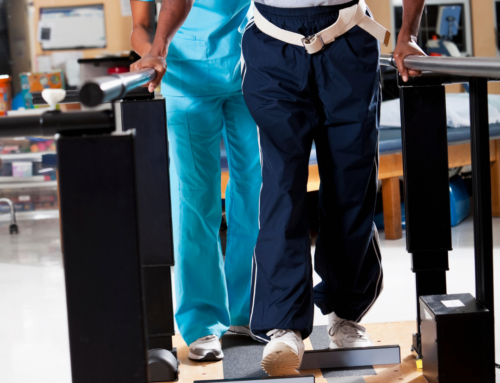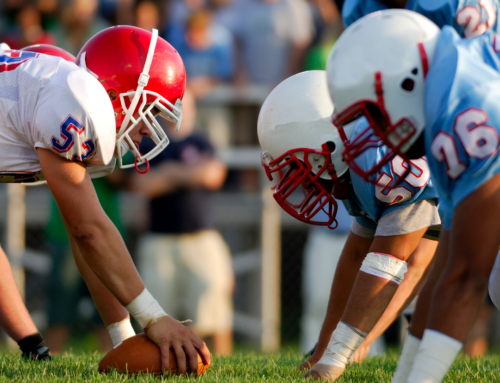
Concussions are the most common type of traumatic brain injury but are also the least serious. The brain is made of soft tissue surrounded by the skull, and violent fall, jolt, or blow to the head could cause the brain to bounce off the skull resulting in bruising, damage to blood vessels, or nerve injury. Participation in sports, especially those where contact is part of the game like ice hockey, football, or lacrosse, greatly increases the risk of concussion.
There are several different symptoms that one may feel after a severe blow to the head that could indicate a possible concussion. If you feel any of these symptoms it’s important to tell your coach or athletic trainer, even if the symptoms only last a few seconds:
- Confusion
- Slurred speech
- Nausea
- Vomiting
- Balance problems
- Sensitivity to light
- Memory loss
- Difficulty concentrating
Concussions are measured in three different grades depending on the severity of the symptoms. Grade one, which refers to mild concussions, have the symptoms lasting for less than 15 minutes, and consciousness is not lost. Grade two, moderate concussions, the symptoms last longer than 15 minutes and consciousness is not lost. Grade three, severe concussions, consciousness is lost, sometimes for only a few seconds.
If you suffer from a grade one or two concussion, wait until you don’t feel any symptoms before returning to play. The athletic trainer will advise you throughout this process, which could take a few days or a week. If you experience a grade three concussion, you should seek medical attention immediately to make sure no internal bleeding or damage occurred.
Sometimes, however, concussion symptoms don’t go away and may need further testing and treatment.
- Post-concussion syndrome is the disorder where a headache and dizziness persist weeks and sometimes months after the concussion-causing injury.
- Second-impact syndrome occurs when another concussion is suffered before the first has time to heal properly. This is a very serious injury and could lead to death or disability, making it extremely important to make sure all the symptoms are gone before returning to play.
As an athlete, we understand that your priority is to rejoin your team on the field. If you’re seeking advisement following a severe concussion, contact us for an appointment. We have four convenient locations in Wantagh, Valley Stream, Lindenhurst, and Astoria with highly qualified teams willing to do whatever it takes to get you back onto the field as quickly as possible.






